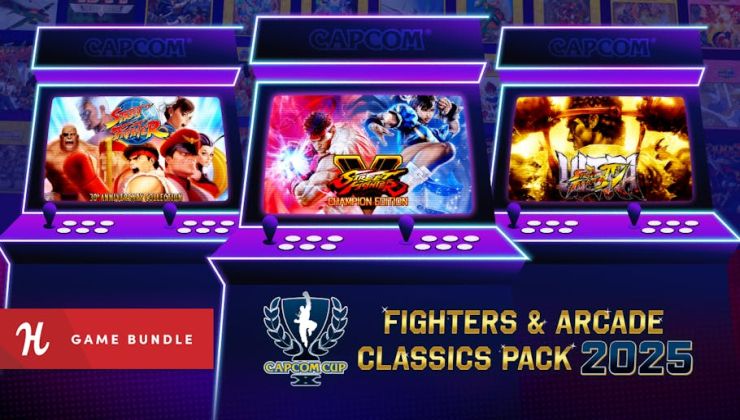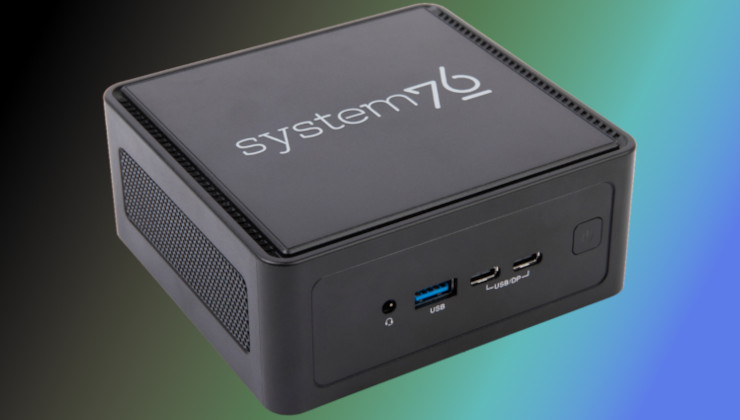Ahead of the launch of Stadia next month for those who picked up the Founders Edition, Google are chatting a bit more about their plans for the Debian Linux-powered game streaming service.
Firstly, Google just announced their first-party developer Stadia Games and Entertainment will be located in Montréal. Additionally, they have a new interview up with GamesIndustry.biz to go over their grand plans for the service. This includes multiple first-party game developers run by Google, Stadia Games and Entertainment is just the first. Speaking to Jade Raymond, the VP and Head of Stadia Games & Entertainment they said:
We have a plan that includes building out a few different first-party studios, and also building up the publishing org to ship exclusive content created by indie devs and other external partners.
The games Google manages to make and secure with Stadia will be one of the big things that makes or breaks it, on top of how accessible it is with things like bandwidth use which is likely to be a big barrier with many people having monthly limits.
Part of their plan is to make games that other platforms can't handle. Games are of course often limited by the processing power of your PC, with top-end games requiring some pretty expensive consumer hardware to perform well. Not so much a problem with Stadia, since games will run across their ridiculously powerful servers and stream it into your Chrome browser window. This is all part of their plan of course:
There are a lot of things that being cloud native enables that you're just not going to be able to see on other platforms, and I think that's the job of first-party, to really show that off and let people imagine what those things are.
Think about it, AI that's a lot smarter powered by something like Google Duplex, many times more people available on the screen than would be possible before and so on. There are a lot of possibilities with.
Raymond said in the interview, that they do have some exclusive games currently in the works that should demonstrate what they mean with Stadia's server power. However, it could be "several years" before some big new IP comes out that fully takes advantage of it but they claim we should see some that push the boundaries coming out every year.
In other news: Stadia Founder’s Edition has now completely sold out too, as announced on Twitter a few days ago. However, it has been replaced with the Stadia Premiere Edition which also gives access on November 19. On top of that, the recently announced Darksiders Genesis will hit Stadia at the same time as the Windows release on December 5.
There are a lot of drawbacks to the service, many of which we've mentioned before. However, for Linux gamers especially it really could fill a huge gap. Having access to things like online multiplayer titles that will never be ported to Linux and possibly never work in Steam Play is an exciting one.
Stadia is set to launch on November 19. We have a Founders Edition ordered to see what we think, however we may be in for a wait since they're shipping out based on your order date. It's going to be interesting to see what the experience is like when played on Linux. Stay tuned.
Honestly, I was excited about Stadia, but I would have liked it to be different, to be really innovative and not just "more of the same". I stayed loyal to Steam in these years, 'cause I remember what Linux gaming was before the guys from Bellevue came up.
Now I read about game exclusives... bleah. Same old story. I don't like exclusives at all, even timed-exclusives. We don't really need another online platform and I think we won't get more games on Linux as they will be "trapped" and "tailored" in/for big G servers. I would have loved and immediately subscribed a remote streaming service for the existing platforms like Steam, because the main "big thing" I see in Stadia is no longer caring about periodically renewed hardware... but I don't want to give up my games collection and if I have to be honest at all I feel like Google is somehow "stealing" something from Steam effort about Linux. Hope I'm wrong and things could change in the future.
Games that are not only always online, but streaming-only so that no one even has access to the binaries (to circumvent this in the future) and no secondary market can exist. Games that are so heavy that it doesn't matter that they run on Linux or not, because they can't run on a PC anyway. Games that are made for Linux but they are not sold, just streamed so it doesn't matter at all for us that use Linux.
I already hate the arms race between AAA games that force people to keep buying super expensive hardware - in part to push sales of hardware, in part to compete with each other. Now they want to make games that can only be run on servers to create a demand for their streaming service.
Sure, there might be an interesting technical possibility or two when you aren't bound by consumer hardware limitations. Maybe one game will have one cool gimmick. But mostly, this will pretty much only focus on more fidelity (which is absolutely superfluous and more of a marketing aspect than an enhancement to the game these days).
Technical Exclusivity is kind of OK - but i HIGHLY doubt that will be the case. I simply don't see them assigning much more CPU/GPU-Power to a single instance than a modern gaming PC provides. The claim might hold true for mobile games or consoles, but other than that it will probably be the blant, simple, anti-consumer political exclusivity that is plaguing us with other consoles already...
They want billions to play on Stadia in the future. Until that happens and their resources become limited, I'm pretty sure they'll want to impress people with their power..
Other than that I think you hit the nail!
What's next? Celebrating all the banks for running Linux servers on their backends? Thought not.
None of this will do *anything* for Linux gaming.
What's next? Celebrating all the banks for running Linux servers on their backends? Thought not.That's pretty ridiculous, as it has nothing to do with Linux gaming. This does, quite clearly.
None of this will do *anything* for Linux gaming.Depends on your point of view, it's yet another way to play games without needing Windows. Regardless of how certain people feel about the nature of cloud gaming, it's an option.
None of this will do *anything* for Linux gaming.Depends on your point of view, it's yet another way to play games without needing Windows. Regardless of how certain people feel about the nature of cloud gaming, it's an option.
On my point of view, it might not require Windows but it is not playing on Linux either.
Not that you shouldn't cover it on the site, I like knowing about it and here is one of the best sources.
But as far as being an alternative, if I wanted to play games that don't run on my Linux system I'd just dual boot Windows. Having a Linux server somewhere that gives me even less freedom than Windows is not an advantage, especially if the game is exclusive to this model and it doesn't even result in a port I could use.
"Exclusives". "Don't be evil" my a**.
Worst thing is Jade Raymond came up with Assassin's Creed so no doubt she'll create a successful amazing IP. Yet I wish they fail, it's time we get interoperable platforms for gaming ffs.
I have my doubts this will have any positive impact on Linux gaming as a whole. Google doesn't want people to play more games, they want people to do more stuff through their platforms. Imagine all the voice chat they miss out on? Imagine all the input, behaviour and ticks they miss? It's just another venue of data mining.
/cynicalLawnOwner
Google knows they have only one chance to make it right and I see they pouring a lot of impressing tech and brainstorming into this, can't be all that bad.
Honestly, if there is a sound technical reason to run some games in the cloud that's not just a DRM measure, be my guest. At least that wouldn't be "we're exclusive because we love to have a monopoly". At the same time I expect 90+% of all games to still run just fine on a local PC in the future. Not all games are like MS Flight Simulator. The visuals contemporary games can achieve even without the cloud is already amazing, and Moore's Law dying or not, local PCs will still get more powerful over time. I am really curious if Google will make JUST the games cloud-dependent that REALLY need it. Let's just say I believe it when I see it. Google has said goodbye to "Don't be evil!" years ago, so...
I am too cynical to accept "sound technical reasons" in this kind of stuff. Even if there is a real demand that can be solved that way, when the person in charge has a vested interest in pushing that particular "solution" it becomes just an excuse. They end up creating problems just so they can sell the answer, and often killing other alternatives.
In this case they aren't talking about one thing they always wanted to do but it is only possible with this technology. They are specifically looking for anything that is only possible with this technology so they can justify their draconian DRM and "you don't own games" system.
If popular game engines
I'm mildly curious what developers come up with to make use of that spectacular server hardware. In my experience, more power does not automatically equate to better games. But I guess there might be some genres that could potentially benefit. Online games with more concurrent players perhaps, or RTS games with gazillions of units. Or unbeatable AI opponents (whatever fun that may be) ;-). We'll see ...
No, thanks.
Imagine interactive fiction, visual novel games and games like "Eliza" or "Emily is Away" getting some help from Google's voice engines, contextual AI, their vast search comprehension or maybe some dynamically emoting characters done with an emotion library and perhaps dynamic style-transfer animation; character's that might be able to talk with you in-game more unrestrained by a script and understand references to things outside their game world.
I'm not sure exactly how this could fit together, but it at least seems much more promising than just playing more of what's already available.
Last edited by Cybolic on 26 Oct 2019 at 9:05 am UTC
For any game that is worthwhile enough for exclusivity to make a difference, I will likely play only that game, until I'm done with it. So for as long as I want to play it, I'd subscribe to that service, and cancel afterwards.
Unlike with consoles, there is no entry barrier in terms of purchasing hardware and making space for it at home, that would give an incentive against switching platforms.













 How to set, change and reset your SteamOS / Steam Deck desktop sudo password
How to set, change and reset your SteamOS / Steam Deck desktop sudo password How to set up Decky Loader on Steam Deck / SteamOS for easy plugins
How to set up Decky Loader on Steam Deck / SteamOS for easy plugins
See more from me